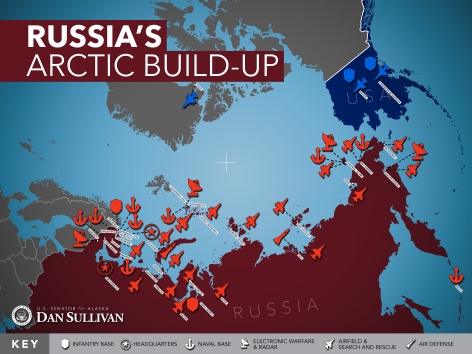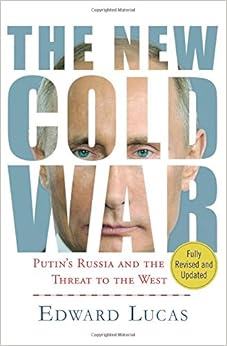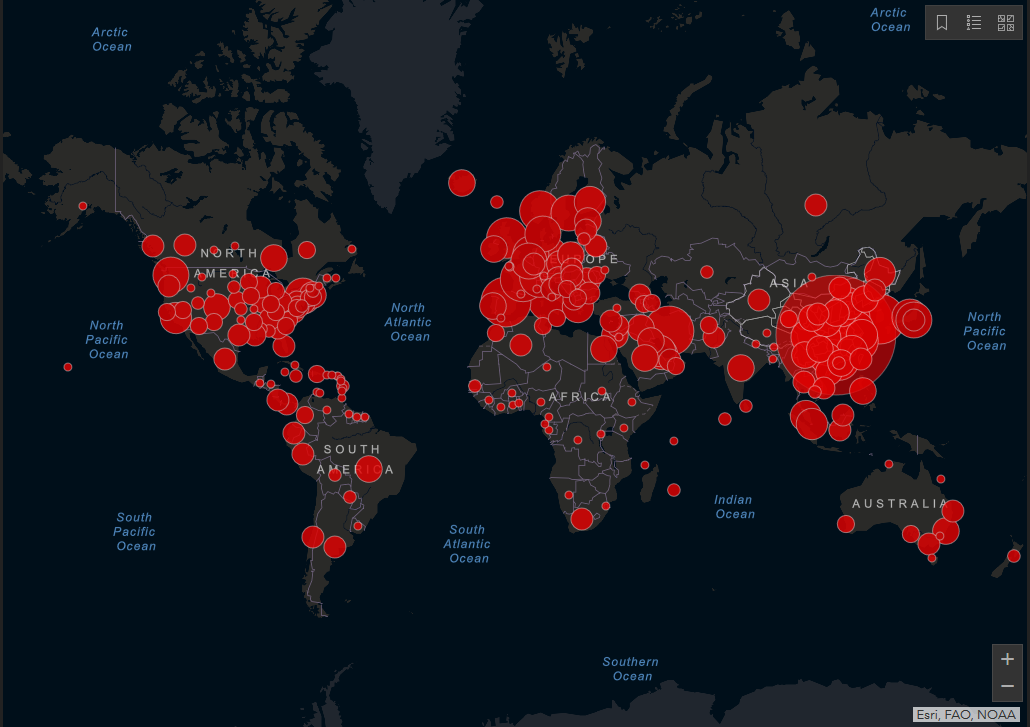
– Spain’s Deputy Prime Minister Meets with US Treasury Secretary Geithner and International Monetary Fund Director General Lagarde in Washington
– British Banknote Printer De La Rue Denies Rumors Company Printing Drachmas in Case Greece Bolts from Eurozone
– Greek State Utility Requests Emergency Cash to Maintain Flow of Natural Gas from Russia, Athens Imports 80% of Supply from Gazprom
– Portugal Props Up Three Banks with US$8.27 Billion as Cyprus’ Communist Government Relies on Russian Loan, Considers Its Own EU Bailout Options
– Portents of Germany’s Future if Eurozone Collapses on Its Back: 700 Neo-Nazis and 3,500 Communists Clash in Port City of Hamburg
– Backgrounder: Why a Grexit Would Make Lehman Look Like Child’s Play
We’re in a situation of total emergency, the worst crisis we have ever lived through.
— Felipe Gonzalez, former socialist prime minister of Spain (1982-1996)
Although Greece has dominated the news for months with respect to the Eurozone’s financial and monetary crises, in recent weeks it has become apparent that Spain–with its tottering banks, cashless regional governments, and crippling 24% unemployment–has become the latest candidate for a bailout package from the European Central Bank. “We’re in a situation of total emergency, the worst crisis we have ever lived through” commented Felipe Gonzalez, Spain’s last socialist prime minister.
Chaos over Madrid’s €23.5bn nationalization of crippled lender Bankia, the fourth largest bank in Spain, has led to the abrupt resignation of Bank of Spain governor Miguel Ángel Fernández Ordóñez, who testified to the Spanish Senate that he had been “muzzled” to prevent the public from losing all confidence in the Spanish banking system. The ECB, reports Britain’s Telegraph, is “pushing” Spain to accept a loan package from the European Financial Stability Facility. Nationalists within Spain’s center-right Popular Party government view such handouts as an “unacceptable loss of sovereignty.” Yet, at the same time, Prime Minister Mariano Rajoy (pictured above) advocates a “centralized” European authority over “individual government finances.”
“Nobody is short Spanish debt right now because they are expecting ECB intervention,” said Andrew Roberts, credit chief at Royal Bank of Scotland. Spain, according to The Telegraph, “is caught in a classic deflationary vice: a rising debt burden on a shrinking economic base.” Roberts is quoted as saying: “Once you get into such a negative feedback loop, you can move beyond the point of no return quickly.”
“It is dangerous to play chicken when you are driving a Seat and the ECB is driving a tank,” said professor Luis Garicano at the London School of Economics. “The Rajoy people will do anything to avoid the slow agony of Greece. There is massive disaffection with the euro in Spain and papers like El Pais and Vanguardia are turning anti-German.”
On Wednesday, Brussels floated the idea of a Eurozone “bank union” and advocated use of the European Stability Mechanism, which has not yet been ratified by most member states, to “sever the dangerous nexus” between crippled lenders and crippled states. The German government promptly shot down the proposals, suggesting that such plans amount to debt-mutualization, a form of back-door eurobonds. The Telegraph’s sources in Berlin say Germany wants Spain to tap the International Monetary Fund — as well as the EU — to spread the rescue burden to the US, China, Japan, Britain and others.
Meanwhile, Bank of Spain data showed a net 66.2 billion euros (US$82.0 billion) was sent abroad in March, the most since records began in 1990. The figure compares to a 5.4 billion net entry of funds during the same month one year ago. “Spaniards are worried about the health of their banks,” says Reuters, “hit by their exposure to a 2008 property crash, and have been sending money to deposit accounts in stronger economies of northern Europe.” The capital flight data preceded the nationalization of Spain’s fourth biggest lender Bankia in May when it became clear the bank could not handle losses from bad real estate investments, compounded by a recession.
According to a spokesman for the European Commission, the EU’s executive branch, Spain must lay out its restructuring plans for Bankia to the EC, adding that “a domestic solution to the country’s bank crisis would be better than a European rescue.” On Wednesday, the Spanish government acknowledged that it would finance a 23.5 billion euro rescue of Bankia through a domestic bank fund, but senior debt bankers said that the syndicated bond market is currently closed for Spanish agencies. The Spanish government also hopes to clear doubts about how it plans to ease financing problems among its 17 autonomous regions, including cashless Catalonia.
Significantly, Spain’s Deputy Prime Minister Soraya Saenz de Santamaria was meeting U.S. Treasury Secretary Timothy Geithner and International Monetary Fund Director General Christine Lagarde in Washington on Thursday. The deputy PM will outline Spain’s measures to tackle its crisis during the meetings, which were scheduled before Spain’s situation reached boiling point, a government spokesman said. Fears that Spain may exit the Eurozone have prompted the coinage of a new word, “Spexit,” which plays on fears of a Greek departure, dubbed “Grexit.”
Significantly, default protection costs for both Spain and Italy, which also faces serious debt issues and a sluggish economy, rose to new records last week. On June 1 Dow Jones News Wires reported:
The cost of protecting both Italian and Spanish government debt against default rose to records Friday, after data showing the euro-zone’s manufacturing worsened in May added to fears of crisis in the region. Italy’s five-year credit default swaps broke through its previous December record to hit 575 basis points, 18 basis points wider from the close Thursday, according to data-provider Markit. Italy has been affected by concerns that problems with the Spanish banking sector could spread.
In Greece, where most of the Eurozone meltdown woes have been focused until lately, the far-left Coalition of the Radical Left (Syriza), which supports the euro but rejects the EU’s bailout package, is leading in public opinion polls. Poll results cited in Ekathimerini show Syriza surging ahead of center-right New Democracy in a sudden turnaround since last Sunday, which gave New Democracy a slight lead. The latest data awards Syriza with 31.5% of decided voters, New Democracy with 25.5%, and the disgraced socialists of PASOK with 13.5%.
Among the smaller parties, the Democratic Left, which has articulated its willingness to form a coalition government with Syriza, has 7.5% of decided voters, while the old-line Marxists in the Greek Communist Party (KKE) have 5.5%. Support for the neo-Nazi Golden Dawn has dropped from 7% in the May election to just 4% still, unfortunately, enough of a percentage to admit the party into parliament.
If Syriza forms or leads the next government, charismatic but untested party leader Alexis Tsipras has clearly articulated his intent to reject the EU’s bailout package for Greece, which will very likely precipitate a “Grexit.” Speculation around this eventuality has sparked rumors that British banknote printer De La Rue has started printing drachmas, a claim denied by the company.
In recent weeks, the cash-strapped predicament of the Greek state has become more than evident. This past week, the Greek media reported that the county’s prisons are running out of food and that some inmates are “quite literally on the verge of destitution and hunger.” Greek news source Protothema reports:
The latest example is the prison in Corinth where after the supply stoppage from the nearby military camp, the prisoners are at the mercy of God because, as reported by prison staff, not even one grain of rice has been left in their warehouses. When a few days earlier the commander of the camp announced to the prison management the transportation stoppage, citing lack of food supplies even for the soldiers, he shut down the last source of supply for 84 prisoners. The response of some Corinth citizens was immediate as they took it upon themselves to support the prisoners, since all protests to the Justice ministry were fruitless.
The same source continues: “The prisons in Patra and Alikarnassos have also been experiencing food supply problems lately, as the prisoners who cannot afford to buy food from the prison canteen are left without food.”
Meanwhile, the state-owned Public Power Corporation (DEI) and Public Gas Corporation (Depa) have requested a state loan to ensure a continued supply of electricity and natural gas to customers. On Friday, the Regulatory Authority for Energy (RAE) told Reuters it called an emergency meeting for the week of June 3, in the words of regulator chief Nikos Vasilakos to “avert the collapse of the natural gas and electricity system.” In a separate interview with Reuters, DEI CEO Arthouros Zervos said: “This is an emergency and it has to be addressed immediately. There’s a real threat of power cuts.”
For those looking for Moscow’s role in the Eurozone crisis one does not have to look too far. Greece imports 80 percent of its natural gas from Kremlin-owned Gazprom. “Depa is the weakest link in the chain because they have to pay the Russians,” said Zervos.
Incidentally, the neo-Soviet leadership has taken due note of the Eurozone crisis and is taking evasive action to protect Russia’s financial system. “But I think you can all see the economic crisis in the euro zone is having a significant impact on energy demand because energy is a litmus test, an indicator of economic health,” Gazprom CEO Alexei Miller told reporters in the Siberian city of Omsk.
Prime Minister Dmitry Medvedev has order Russia’s central bank to prop up the rouble vis-à-vis the euro and US dollar. The AFP news agency opines: “A dramatic loss in the value of the rouble would be a nightmare for the government of President Vladimir Putin, which is hoping economic stability will keep a lid on an unprecedented outburst of opposition protests.”
President Putin is currently on an international tour that includes former Soviet republics like Belarus and EU countries like Germany and France.
Elsewhere in the EU, Irish voters, who have already endured four years of government austerity, have ratified a deficit-fighting treaty that will impose further budget cuts and tax hikes on the population. Nearly 60 percent of referendum voters elected to support the treaty, which is a victory for the government of Prime Minister Enda Kenny, but a defeat for Ireland’s socialists.
“The `yes’ side is going to win. The question now is where will the jobs and the stability they have promised come from, against the backdrop of a continuing and deepening capitalist crisis within Europe? Their policies will only make the situation worse,” complained Joe Higgins, leader of Ireland’s Socialist Party.
The treaty, inked in February by leaders of 25 European countries including Ireland, proposes that all signatories should reduce their annual deficits to no more than 0.5 percent of gross domestic product. The current Eurozone limit is 3 per cent of GDP.
Other countries on the geographic periphery of the EU are also struggling with severe economic situations. In Portugal, the government expects its jobless rate to peakat 16 percent in 2013 as the country struggles through its worst recession since the 1970s, when leftist army officers overthrew the semi-fascist Second Republic. On Monday, Lisbon, to meet an EU deadline for higher capital ratios by the end of June, announced that it will bail out three of the country’s biggest banks with €6.65 billion.
Finally, the communist government of Cyprus has acknowledged that it is not averse to seeking a handout from the EU in order to prop up its own troubled banking sector. Nicosia is relying on a Russian loan just to meet its basic expenses this year.
In a related story that portends chaos for Berlin, should the eurozone collapse on the back of Germany, on Sunday 700 neo-Nazis and 3,500 communists clashed in Hamburg. The German port city deployed 4,400 police to maintain peace during the opposing marches, but 38 officers were injured and €1.5 million worth of property damage occurred.









